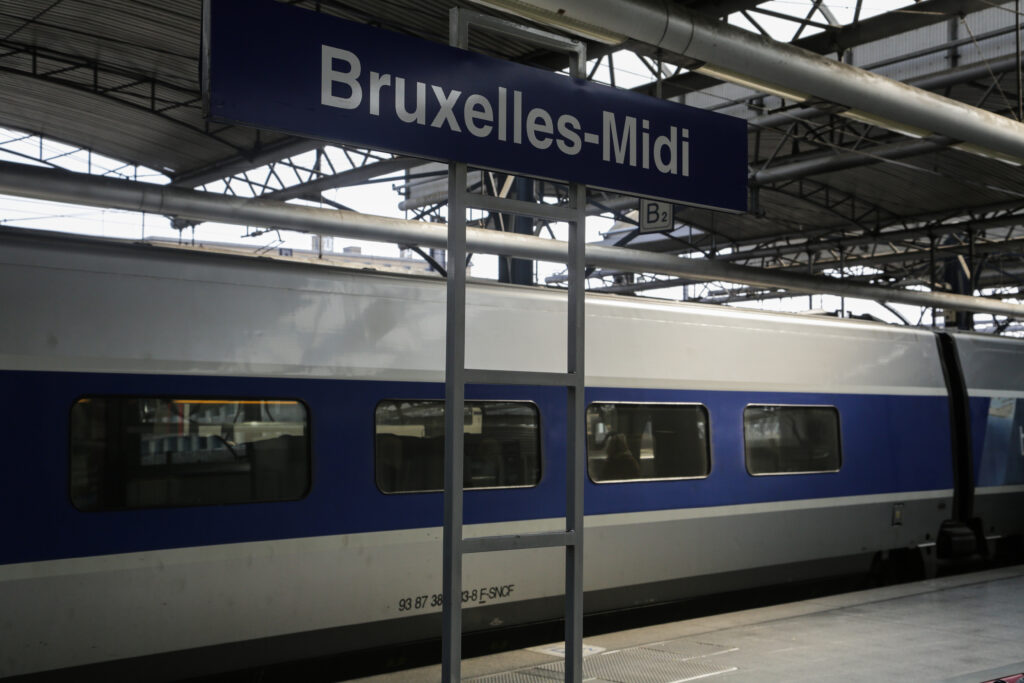Eurostar passengers in Brussels are still being encouraged to purchase banned pork products at duty free before heading to the UK, despite a UK ban on personal meat imports being in place since April, according to a report.
The NPA described the situation as ‘extremely alarming’, reinforcing concerns that the UK’s national biosecurity controls are not being taken seriously enough, and urged the government to act.
In April, the government tightened up the rules on personal imports in response to the spread of foot-and-mouth disease (FMD) in Europe. This made it illegal to bring in any foods like cured meats, cheese, and milk into Britain from the EU, with travellers facing fines of up to £5,000 for breaching the rules.
However, according to a report by POLITICO, a wide selection of banned products are still on sale beyond security and passport control at Brussels Midi station in a shop exclusively accessible to people traveling to London.
Travellers who clear UK passport control are faced with a shelf of Belgian pork products, including a 40-pack of cured sausages and a fridge pack of Bruges smoked ham. No signs warning about the restrictions were visible near the shelves recently when POLITICO journalists visited the station, and the sales are taking place ‘right under the noses of UK Border Force officials’, the report adds.
Alarming
This latest evidence of gaping holes in the UK’s biosecurity controls closely follows a damning report from the National Audit Office finding that Defra and the Animal and Plant Health Agency (APHA) are insufficiently prepared for a major animal disease outbreak.
NPA senior policy adviser Katie Jarvis said this report about Brussels-Midi further highlighted the vulnerable situation the UK is in.
“It is extremely alarming to see that pork is being sold at a point of entry into the UK, despite it being illegal to bring pork and other animal products from the EU.
“Clearly the news of these controls, which have been in place for some time, has not been received and understood. We would urge Defra to be proactive with its communication around these personal import controls and ensure there is effective enforcement and consequences for those breaking the law.
“This also raises further questions about the biosecurity implications of the UK’s recently announced new deal with the EU. If meat isn’t being stopped in the EU, how is aligning with EU protocols going to better stop it from coming into the UK?”
Increase awareness
A UK government spokesperson said: “This government will do whatever it takes to protect British farmers from foot and mouth disease. We are working closely with Border Force, ports, airports and international travel operators, to increase awareness of the new restrictions including via prominent signs.”
Politico reports that Eurostar said it emails passengers before they travel warning them that they can no longer bring animal products into the UK due to temporary government restrictions.
Dover resource
The NPA has also reinforced its calla for sufficient resource to be allocated to the Dover Port Health Authority (DPHA) to enable it to detect and seize illegal meat imports coming through the port. Since September 2022, DPHA has seized more than 243 tonnes of illegally imported meat, which is considered to be just the tip of the iceberg.
The NPA has continually stressed the point to government that the relatively small extra costs involved to bolster our national disease defences would pale into insignificance against the cost of a notifiable disease outbreak.
The National Audit Office report on the 2001 foot-and-mouth disease estimated ‘the direct cost to the public sector is estimated at over £3 billion and the cost to the private sector is estimated at over £5bn. This equates to around £14.7bn in today’s prices.
The immediate impact of an ASF outbreak would be an export ban on UK pork worth around £600 million. Defra’s own analysis estimated that an outbreak could cost the UK between £10-100m.




